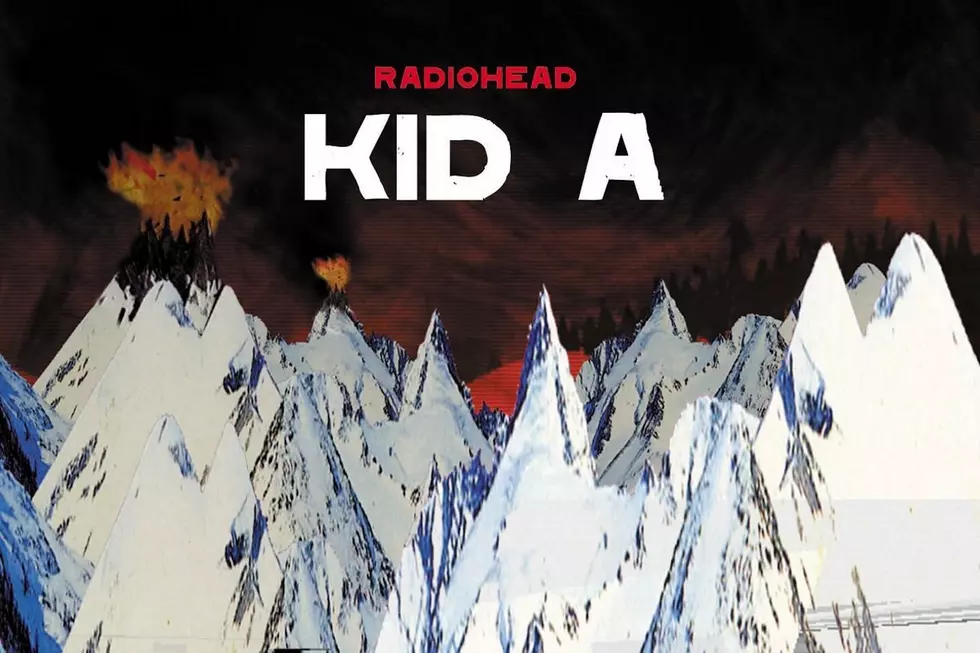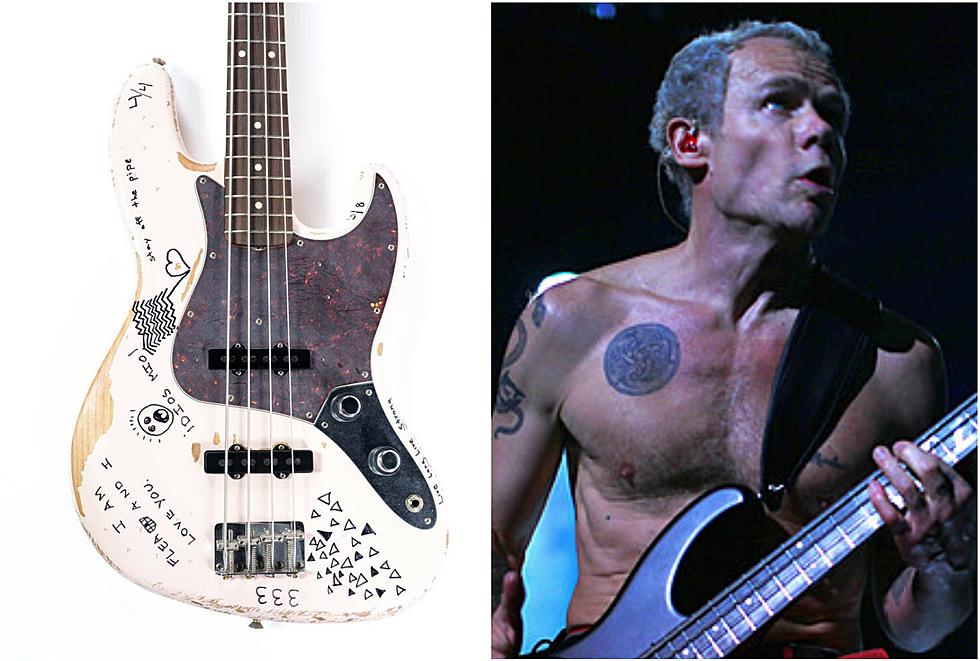
20 Years Ago: Radiohead Completely Deconstruct Rock With ‘Kid A’
Radiohead were preparing to perform a show in November 1997 when Thom Yorke suddenly felt compelled to run.
Just 30, Yorke's career was in ascension. Radiohead's most recent album, the critically hailed OK Computer, had become their first-ever U.K. No. 1. They'd nearly cracked the Billboard Top 20, too.
It hadn't come easy. Radiohead got there, in part, courtesy of a brutal public schedule: By the time the tour ended, they'd played nearly 700 concerts in the previous seven years, according to Steven Hyden's This Isn't Happening, a book focusing on Kid A. Their next project was expected to confirm Radiohead's burgeoning superstar status.
Backstage at the NEC Arena, Yorke was suffocating under the expectations.
"I always used to use music as a way of moving on and dealing with things," he told The Guardian in 2000, "and I sort of felt like that the thing that helped me deal with things had been sold to the highest bidder and I was simply doing its bidding. And I couldn't handle that."
He suddenly ditched security, slipping out of stadium and into the streets of Birmingham, England. Eventually, Yorke found himself on a train, hurtling toward what he hoped would be some exciting new destination. Unfortunately, the public transit brought Yorke right back around to the same venue where Radiohead's name appeared on the marquee.
The sad metaphor couldn't have been clearer: He was going around in career circles.
"I always assumed that it was going to answer something — fill a gap,” Yorke told Dazed in 2013. "I was so driven for so long, like a fucking animal, and then I woke up one day and someone had given me a little gold plate for OK Computer and I couldn't deal with it for ages."
Listen to Radiohead's 'Idioteque'
Radiohead's future stood in the balance. Yorke had once rightly compared the band to the U.N., with their frontman assuming America's central leadership role. Unfortunately, his first attempts at discovering a new creative destination met the same fate as that Birmingham train ride.
Sessions in Paris for the next album broke down. Sessions in Copenhagen broke down. Attempts to move forward back in England didn't initially fare any better. Yearning for freedom, Yorke was trying for something different, something less structured. But there didn't initially appear to be a place for guitarists Jonny Greenwood and Ed O'Brien in his open-ended keyboard experiments. At one point, Radiohead had as many as 60 song fragments.
Bassist Colin Greenwood later told Q that he began to worry Yorke might be leading them toward "some awful art-rock nonsense just for its own sake, so that it looks like you're cutting your nose off to spite your face."
Then everything somehow improbably clicked while they worked on "Everything in Its Right Place" – a piano ballad, of all things. Yorke and co-producer Nigel Godrich switched to a Prophet-5 synth, and Jonny Greenwood was moved to run the vocals through a newly introduced audio-effects unit called the Koass Pad. Those alien sounds opened a previously locked door.
The electronic, determinedly abstract results on Kid A veered out of stadium-friendly, twin-guitar rock with such quickness that it popped mental hamstrings for fans and critics alike. Gone were the conventional verse-chorus-bridge structures of their earliest successes. Only three of the album's 10 tracks had important contributions on guitar.
By then, however, O'Brien had bought in, too. "These things take time. You have to pay your dues," he later enthused. "We did our thing with 'songs' and we're still doing it, but that's not what we're interested in. We are interested in the sonic stuff."
Listen to Radiohead's 'Everything in Its Right Place'
The majestic "How to Disappear Completely" presented as something like a pop ballad, but way weirder. And really, that nod to convention was the exception rather than the rule: "Idioteque" was a free-form poem about the end of the world, while "Treefingers" unfolded as a wordless meditation. Whatever this was, it wasn't rock music – at least not as it had been defined before the arrival of Kid A on Oct. 2, 2000.
"There's a lot of things about rock that are still valid, almost shamanic things: delving into drugs for creative reasons, not lifestyle reasons; music as a lifetime commitment," Yorke told Rolling Stone in 2000. "If that's what someone means by rock, great. But I find it difficult to think of the path we've chosen as 'rock music.'"
Still, Kid A somehow became Radiohead's first chart-topping U.S. album. Time memorably called it "the weirdest album to ever sell a million copies." Yorke had tapped into the new millennium's jittery media-obsessed zeitgeist.
"The interesting thing about bands and music is the way they develop," O'Brien noted. "I think in a couple of albums' time, Kid A will be seen as more important than it is now. It's another way of working, it's another methodology. That's what's interesting, and that's what was interesting about [David] Bowie in the '70s or Lou Reed or whoever. Sometimes you have to just trust your instincts."
He was right. This Isn't Happening noted the album's larger forward-looking themes of "decontextualized social-media updates," "glitchy cell reception" and "the modern reality of omnipresent technological interconnectivity at the expense of genuine human connection." In time, Kid A came to feel predictive.
"The world has caught up to it," Hyden told The Wall Street Journal. "When you heard the album in 2000, it didn't make sense — as rock music, as a Radiohead record, even as songs. But when I listen to it now, it feels like what it's like to experience daily life. We live in this world where we're being inundated with information. Today, Kid A almost sounds like classic rock, because our brains have been rewired."
Radiohead Albums Ranked
More From Alt 95.7










